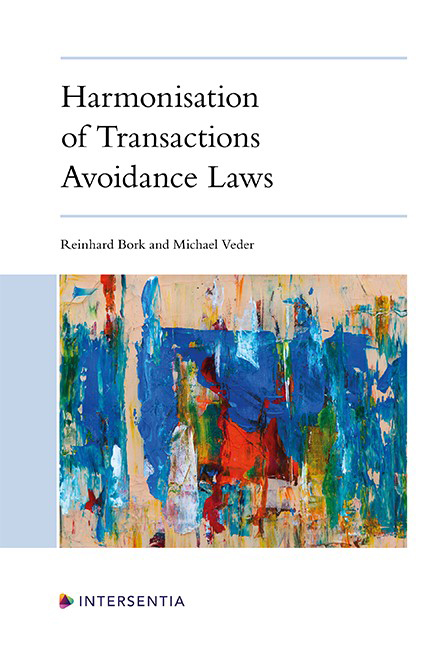Greece
Published online by Cambridge University Press: 26 May 2022
Summary
A. INSOLVENCY LAW OF GREECE
The national transactions avoidance law is mainly part of the Greek insolvency framework as set out in the recently enacted Law for the Settlement of Debts and Second Chance (Law No. 4738/2020, currently in force as the “Insolvency Law”).
In addition, Art. 939 et seq. of the Greek Civil Code (“CC”) contains a provision for the defrauding of creditors that applies to all entities (either individuals or legal entities), including consumers. More precisely, creditors are entitled to request the annulment of any act made by the debtor to their detriment, in so far as the remainder of the debtor’s estate does not suffice to satisfy the creditors. Therefore, the CC provides that the transfer may be revoked if the transferee did not act in good faith, that is, the transferee knew that the debtor made the transfer with the intention of harming the creditors. The law provides for a rebuttable presumption in relation to the third party’s knowledge, where the third party is the spouse of the debtor, a relative by direct lineal relationship, a relative by blood up to the third degree or a relative by marriage up to the second degree (Art. 941 CC). Moreover, if the transfer is gratuitous (such as a gift), proof of the transferee’s knowledge is not required for the avoidance of the transfer (Art. 942 CC).
Rules of avoidance under the Insolvency Law apply to both natural persons and legal entities pursuing an economic purpose, while the provisions of the CC apply to all persons (i.e. also to legal entities that do not pursue an economic purpose).
B. SCOPE
It would not appear that the implementation of the Model Law would bring about a substantial change to the scope of the Greek transaction avoidance law. However, there are other differences between the two sets of rules that are described in the sections below.
C. GENERAL PREREQUISITES
A transaction may be avoided according to the Greek Insolvency Law if it involves the debtor and is detrimental to the general body of creditors and has occurred within a certain time frame prior to the opening of proceedings, as detailed below (Art. 116 Insolvency Law).
- Type
- Chapter
- Information
- Harmonisation of Transactions Avoidance Laws , pp. 399 - 406Publisher: IntersentiaPrint publication year: 2022



